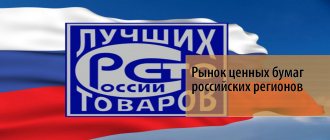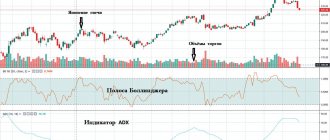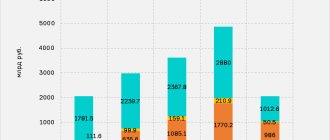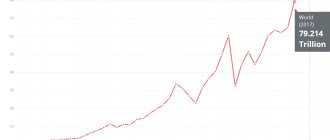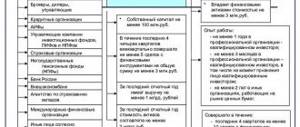olegas Aug 21, 2021 / 103 Views
Legal entities whose activities are related to the organization of securities circulation and are carried out on the basis of a special permit issued by the relevant regulatory authorities (in our country this is a license from the Central Bank of the Russian Federation) are called professional participants in the securities market.
The main activities engaged in by professional participants in the securities market include:
- Acting as an intermediary in concluding transactions with securities according to the orders of its clients (and at their expense). Or, in other words, brokerage;
- Activities of buying and selling securities at one’s own expense by issuing one’s own quotes. In other words - dealer activity;
- Activities related to the formation and management of a securities portfolio for its clients. In other words - trust management;
- Activities for conducting mutual settlements between all participants in the securities market. In other words - clearing;
- Organization of storage of securities both in electronic and physical form (for securities issued in documentary form), as well as accounting for the change of their current owners. In other words - depository activities;
- Maintaining a register of owners of securities under an agreement with their issuer;
- Providing a platform for conducting transactions for the purchase and sale of securities and, in fact, the organization of trading in them.
In Russia, the activities of professional stock market participants are mandatory licensed by the Central Bank and regulated by Federal Law No. 39-FZ. The Central Bank of the Russian Federation issues a license for a professional participant in the securities market, and in addition, for registrars and registrar holders, a license to carry out register maintenance activities.
Next, let's list all these participants and briefly describe the functions of each of them.
Functions of professional securities market participants
Each participant performs one or a maximum of two functions to ensure the smooth operation of the exchange:
- Brokers provide intermediary services in concluding transactions in securities, currencies, currency pairs and derivatives at the behest of clients (traders and investors) and only at their expense, usually on NDD, STP and ECN accounts;
- Underwriters are large market makers who conduct IPOs and help new issuers of securities get listed on the stock exchange. Subsequently, they, as a rule, become market makers of these financial instruments, maintaining a constant balance of supply and demand for them, the size of the spread, ask and bid prices, execution of Buy and Sell orders, payment or retention of swaps, etc.;
- Dealers and market makers are large bank brokers who buy and sell exclusively at their own expense securities and derivatives of the exchange (stocks - blue chips, ordinary shares, bonds, options, preferred shares, warrants, stock (exchange) indices, forward contracts , depositary receipts, index futures, etc.) through their issuance of quotes for financial assets, whose liquidity they provide on the exchange;
- Private traders and investors trade financial instruments exclusively at their own expense through one of the exchange's licensed brokers, who provides them with leverage and provides margin trading for trading large lots on the market. To enter the market, investors and traders open a personal account and trading account (deposit) with a broker, replenish the account through one of the payment systems (Mastercard, Visa, Skrill, PayPal, Payeer, Multicard, Google Pay, Wallet One, Privat 24, Western Union, Shopify, Apple Pay, Paysend, AdvCash, Neteller, Samsung Pay, Contact, Perfect Money, JCB, UnionPay, Paxum, American Express, Cloudpayments, Paymaster, Rapida, Idram, Payu, Paysera, Payanaway, Sofort, Pay pro, etc. .) and further invest fiat money in the quasi-money of the stock exchange;
- Investment funds are large investors who manage other people's financial assets (money of banks, corporations and individuals). These are trust management funds (TD), exchange-traded funds (ETFs), investment funds, PAMM accounts, hedge funds, etc. Funds, as a rule, form investment portfolios of securities and manage them;
- Clearing companies ensure mutual settlements between professional participants in the securities market, carried out through mutual offset, based on the terms of the balance of payments of each participant;
- Depositories are engaged in storing securities certificates in physical and electronic form and/or providing services for recording ownership rights to securities, taking into account the change of owners;
- The register of registered securities is maintained by licensed registrars who enter into agreements with issuers of securities represented on the stock exchange;
- The organizers (owners - large shareholders and their executive management) of the stock exchange provide premises (trading floor during the trading session) and an electronic trading platform to ensure uninterrupted transactions for the sale or purchase of securities, with the display of their quotes and online charts on other stock exchanges of the world, as well as on the off-exchange forex market (for more details, see the main articles CFD and CFD brokers).
In Russia, each participant in the securities market must be licensed by the regulator – the Central Bank of Russia. To work in this segment, you must obtain a license for the activity itself and, separately, for maintaining a register.
The registrar does not have the right to perform other functions on the stock exchange (be an investor, broker, dealer, depository, etc.).
Trustees
Trust management involves the transfer of funds or securities for temporary disposal to special companies that have special professional competencies to carry out transactions on entrusted assets. This option is preferred by those who do not have the desire and sufficient time to invest independently. But there are pitfalls here, which we will discuss below.
Trust management is carried out by a management company. It must have a license from the Central Bank of the Russian Federation. The current list of licensed companies can be found on the website of the Central Bank of the Russian Federation. There are currently 189 organizations on the list of trustees, including banks and brokers.
Before transferring assets to individual management, the client signs a contract with the management company, which defines a whole set of parameters. For example, investment strategy, characteristics of financial instruments of the investment portfolio, acceptable risk, company reporting to the client, the possibility or impossibility of partial withdrawal of funds, etc. The manager's remuneration is also indicated.
We talked in detail about the features and risks of trust management of securities in our article “Trust management of securities”. Please note that the manager, according to the law, does not have the right to guarantee the profitability that the funds under his management will bring! He can only talk about the expected results of an investment with a certain probability. Organizations that give a 100% guarantee of profitability should be avoided, especially if this profitability is calculated in double-digit percentages on an annualized basis. Another distinctive feature of trust management is the presence of a management fee, while the amount of remuneration is in no way related to the efficiency (availability of profit) of the actions of the management company. You may receive a loss - the loss of part of the funds transferred to management, but at the same time you will be required to reimburse the cost of the manager’s services. The tariff policy of management companies is most often tied to the amount of assets transferred for management. The higher it is, the higher the commission.
Collective trust management
There is also such a concept as collective trust management, which means investing in mutual funds (MUIFs). We noted that according to Law No. 39-FZ they do not belong to professional market participants. But since the topic of trust management has already been touched upon, it is worth covering it from all sides.
By investing in such a fund, that is, by purchasing its share, the investor accepts the collective investment strategy prescribed in the fund’s documents. It is implemented by experts hired by the mutual fund management company. This is called active management. If the collective strategy is good, and the experts within it do their job well, the mutual fund grows in price, and as a result, the investor’s share becomes proportionately more expensive. By selling a share on the stock exchange or redeeming it at a management company, the investor will make a profit. Details are in the article “All about investing in mutual funds.”
There is also passive collective management. The scheme is similar, but investing is carried out in ETFs (Exchange Trade Funds). An ETF is essentially an investment fund whose shares are traded on a stock exchange. In 99% of cases, ETFs are exchange-traded index funds. They exactly repeat the structure of any stock index. The popularity of this instrument is due to the fact that the purchase of ETFs allows for broad diversification of investment capital even with small investment amounts. The nuances of investing in ETFs are described in the detailed article “ETF Funds”. Since 2021, Russian analogues of ETFs have appeared, called BPIF - exchange-traded mutual investment funds.
There are many differences between ETFs and mutual funds, but the main ones are that these instruments replicate any stock index. While mutual funds are managed by managers who must constantly work on a strategy for obtaining maximum return on the fund. This results in lower commissions compared to mutual funds.
So, with trust management, the investor’s funds are entrusted in one way or another to the management company. However, now consulting activities are gaining popularity, when an investor manages money independently, but under the strict guidance of an expert consultant. From 2021 in our country it is also regulated by law.
Types of professional securities market participants
All professional market participants can be divided into three categories:
- Investors (traders, investment funds, mutual funds)
- Issuers whose securities are traded on the stock exchange;
- Intermediaries between the first two categories (brokers, dealers, registrars, etc.).
Issuers are companies that issue and sell securities that investors buy. Individual entrepreneurs and credit organizations are not professional participants in the securities market.
Participants in financial markets can be intermarket and intramarket . The former are engaged in servicing and coordinating the work of several financial markets. These are, for example, investment groups that invest in securities, currencies, real estate and other assets, as well as individuals and agencies that specialize in informing market participants. Intramarket participants are persons operating in the securities market.
Categories of participants
Professional securities market participants are divided into the following groups:
- traders - buy and sell assets;
- brokerage firms - perform the tasks of intermediaries;
- dealers - independently trade assets;
- registrars - control lists of documents;
- depositories - storing and controlling securities;
- clearing firms - are responsible for accounting and reporting on financial transactions;
- Organizers are responsible for creating conditions for bidding.
Participants carrying out financial transactions according to official regulations must be licensed.
Brokers
Brokerage firms act as intermediaries between sellers and buyers.
Organizations make financial transactions using shares and other assets on behalf of the customer and for their savings. However, brokers can act on the market to solve their problems. When making complex transactions, brokerage firms can act as attorneys, commission agents and operate on the basis of a formal agreement. Representatives can provide orders and orders from their customers. Brokers' earnings consist of commissions, which are calculated taking into account percentages of completed transactions. In this case, the profitability of the transaction is not assessed; the calculation is made according to the number of transactions performed.
Dealers
Dealers are representatives operating in the stock market. The sale of valuable documents is carried out on one’s own behalf, and one’s savings are spent. Participants publicly announce the cost of acquiring and selling a list of valuable documentation. Only legal entities act as dealers.
Representatives can change the terms of the agreement (number of securities, validity period of the established price, set a short or long period of validity of the offer).
Managers
Professional managers analyze market conditions, select a package of securities for the customer, and make transactions in changing conditions. After the trust agreement, a special manager will perform financial transactions for the customer.
The specialist’s management includes:
- Cash savings that are transferred for investment and received as profit.
- Valuable documents (stocks, bonds) that are owned by the client and added to the portfolio during the investment process.
Management is carried out by individuals and legal entities licensed by the Central Bank of the Russian Federation. The work of representatives is regulated by No. 39-FZ (Article 5). Clients need to draw up a management agreement, which describes the nuances of interaction. The amount of charges and the sequence of payments to the representative for investment services are indicated.
Clearing organizations
Clearing companies are stock market participants carrying out the following activities:
- collecting data on transactions carried out on the exchange and monitoring them;
- determination of responsibility between counterparties in financial transactions on a controlled exchange;
- performing mutual settlements for completed financial transactions;
- providing guarantees for transactions, etc.
Intermarket and intramarket participants
Intermarket representatives regulate and serve the activities of several markets in a single period of time.
Intermarket participants include:
- investment groups investing in assets (currency, documentation, office or residential real estate);
- agencies informing financial market participants;
- private specialists analyzing market information.
Intramarket participants include persons who operate only in the market for valuable documents. Representatives may be professional or non-professional.
Depositories
The purchased securities are stored in depositories. Specialized enterprises retain savings and deposit certificates, bills of exchange.
In addition to the tasks of recording current owners of documents, the responsibilities of depositories include the following responsibilities:
- Intermediation services in receiving dividends.
- Assistance in exercising the rights of the owner of valuable documentation (making decisions at shareholder meetings, assessing profitability, etc.).
With the help of depositories, there is no need to enter information about the new owner of the shareholding into the register of shareholders. The information is recorded in the organization and, if necessary, provided to the issuer (before transferring dividends, reporting). The activities of depository organizations are regulated by the agreement.
Registrants
The list of professional participants in the securities market includes registrars who keep records and save data from the current owners of valuable assets. The registrar collects information for the companies with which it works. The register analyzes and stores information about the owners of securities, encumbrances, etc.
Data on the number and category of securities that belong to each shareholder of the enterprise is calculated. Information is collected in electronic form or in paper form.
The tasks of the registrar also include the following responsibilities:
- Keeping records of outgoing and incoming documents in a special journal.
- Control over the personal accounts of persons who were previously registered in the register.
- Recording of completed financial transactions (in a special journal).
- Control over certificates for valuable documents.
- Accounting and preservation of all documentation according to which adjustments are made to the register.
According to the law, issuers issuing paper assets do not have permission to maintain a register (standards of Federal Law No. 142-FZ). Professional registrars with an official license are in demand in the securities market. Registrars are not authorized to sell securities if the owners of the securities are recorded in the registers maintained by them.
Trade organizers
Trade organizers operate on the exchange and over-the-counter markets. In the exchange market, the organizers are official exchanges.
Trading on over-the-counter markets is organized by specialized trading systems:
- RTS Board;
- OTCBB;
- Pink Sheets, etc.
The exchange market is recognized as the most reliable for investors, because Organizers of auctions take great responsibility for conducting auctions and complying with the rules of financial transactions. All enterprises that are represented on the exchange market undergo a thorough verification procedure to admit only reliable organizations.
The work of the auction organizer is regulated by law; it is mandatory to obtain a license from the Central Bank. Restrictions have been developed that are imposed on the organizers. Representatives should not combine work with depository and clearing activities.
Brokers as professional participants in the securities market
The exchange market is designed in such a way that anyone cannot carry out operations on it to purchase bonds, shares or other securities. To do this, you need an intermediary between the investor and the exchange - a broker, who concludes transactions for the purchase or sale of securities. Brokers do not act at their own discretion, but on orders from clients, which are called orders. A broker can be an attorney, a commission agent, or act under a power of attorney under a contract.
For their services, brokers charge a commission in the form of a certain percentage of the amount of transactions concluded by the client. In this case, the commission is paid regardless of the investor’s earnings or losses, so it does not matter to the broker whether his client will be able to increase his capital or lose it.
What are securities and why are they needed?
Given the rapidly evolving technology, highly secure documents are rarely used in traditional formats.
Each movement that a security acquires from the beginning of the issue (issue) is registered in a special list of financial instruments. The need for documents is caused by the need to quickly transfer assets, regardless of their form, and promptly certify the property rights of the bearer.
With the practice of circulation, each security acquires its own, unique properties.
The need to introduce new instruments into circulation or cease the existence of documents is due to their current functions:
- They are the initial factor for calculating macroeconomic indicators. Statistics can use exchange rate quotes for the properties of individual securities or the dynamics of industry indices. A stable economic situation is often confirmed by rates without sharp (negative) dynamics.
- Based on the essence of such a document as a security, one should indicate the fiscal function. A financial document plays an important role in the distribution of assets between participants in economic relations, organizations and citizens, government institutions, and countries.
- Any security can be used as a conventional means of accumulating capital. The document replaces a bank deposit along with additional options for increasing income. With an increase in capitalization from one owner, the impact on the company’s activities is calculated, from which the mobilizing function follows.
- Basic and preferred securities are used as a centralized means of settlement, including for credit debts. The calculation function also remains effective at all levels of interaction.
Before certificated securities go into circulation, their purpose is taken into account. Fixed-term instruments (1,3 or 5 years) guide a potential investor and determine the attractiveness of the market offer. By their form of existence, certificated securities are more intended for local (internal) circulation, for example, for circulation within one region or a limited circle of persons (closed companies). Most often, this format is used to personally certify the investor’s property rights. Certificated securities may be presented at closed meetings of shareholders.
The need for an economic standard arises from the effectiveness of the instrument. According to one of the main characteristics, securities in terms of profitability exceed bank deposits. Dividends act as an additional source of capital growth. This explains the additional role of securities, which consists in strengthening trust relationships (increasing interest in the enterprise).
In the practice of document circulation, the opposite effect is often observed. Thus, by their essence, securities continue to be a means of capital redistribution. When a financial instrument is overbought, some investors take profits, while a certain group suffers losses. During this period, the issuer company has the opportunity to buy out the entire volume of the placement at a cost lower than the funds raised.
This effect confirms the role and essence of securities, which consists in the active redistribution of capital.
Dealers as professional participants in the securities market
The main difference between a dealer and a broker is that he carries out operations to sell or purchase securities on his own behalf and at his own expense. A dealer is always a legal entity. The similarity is the performance of the functions of a link between the investor and the exchange. However, the dealer is not just an intermediary, but a party interested in receiving benefits from the client.
The dealer's work begins with the client issuing his own quotes, i.e. the dealer is a counterparty to the client. He has the right to announce significant terms of the contract in the form of a maximum or minimum number of securities in a specific transaction, the validity period of the current price. Dealers make money on spreads received from quotes. For example, such a market participant purchases a security at a certain price and sells it two points more expensive. These two points of difference become his earnings.
There are many forex dealers operating in the modern market, and clear rules have not yet been created to regulate their activities. Many such dealers are registered in offshore zones, some even operate under betting licenses. They are supposed to make money on spreads, but simply draining client deposits is far from uncommon in today’s realities.
Such dealers try to call themselves brokers, but so far not a single Forex broker has been officially registered in the Russian Federation. And only 4 forex dealers are licensed by the Central Bank of the Russian Federation. These are Alfa-Forex, VTB-Forex, PSB-Forex, Finam Forex.
The presence of a license cannot be considered a full guarantee of the dealer’s honest work, however, the Central Bank controls the activities of licensed organizations, which is already a plus.
Brokers
According to No. 39-FZ, the number of professional participants includes legal entities engaged in brokerage activities. Brokerage is a contractual paid activity for the execution of client orders, which are of two types:
- Transactions with securities.
- Conclusion of contracts (futures, options, swaps, etc.).
Broker (English broker - intermediary) is the link between the investor and the exchange. It is through a broker that investors gain access to the stock market - through opening a brokerage account and signing a General Agreement. It is through the broker that all trading operations are carried out. By submitting a trade order, the investor essentially instructs the broker to carry out a transaction, for example, to buy and sell shares, or to enter into an agreement, for example, a futures contract. For mediation, the investor pays the broker a commission in accordance with the selected tariff plan.
The brokerage services market is steadily growing and developing - new participants are appearing, and the quality of the services provided is improving. Therefore, before you start investing, it is important to choose the right broker. The main criterion in choosing a broker is reliability (license). Many also focus on trading commission rates, but not everything is so simple. Brokers may have hidden commissions. Therefore, when assessing the budget for brokerage services, you need to take a holistic view. In addition, there are many parameters that, even against the backdrop of a low commission, can disappoint an investor (lack of access to foreign currency assets, quality of support). Read more about this in our article “Best Brokers 2021”.
What should you remember when working with a broker? It makes money from commissions and from offering ready-made investment products (“Structural Bonds”). It is beneficial for him that the client carries out transactions as often as possible and buys exactly the instruments offered. And it doesn’t matter whether the client remains in plus or minus.
“For the benefit of the client,” brokers offer investment ideas. This can be done through e-mail newsletters, Telegram channels, even through the increasingly popular bot advisors, which are a type of stock exchange robots. In principle, such investment ideas can be useful. But you need to weigh whether it is worth implementing a specific idea right now and for you personally. We have talked more than once about why brokers don’t like investors.
The concept of “broker” is gradually expanding, because intermediaries help in various areas. In addition to the stock exchanges described, there are insurance, customs, mortgage (credit) and even freight brokers. Their activities are regulated by the Civil Code of the Russian Federation and additionally by other relevant laws.
Investment fund managers as professional participants in the securities market
Market analysis, selection of the optimal securities portfolio, and its effective management taking into account changes in the market situation are not easy tasks that require certain knowledge and skills. Not every investor, especially a beginner, owns all this to the required extent, so the services of professional investment managers remain in demand in the financial markets
This service is called trust management. All operations with the investment portfolio are carried out by the manager, who acts on his own behalf, but in the interests of his client and at his expense. It controls:
- Money that the client transferred for investment;
- Cash received as a result of transactions with securities;
- The securities themselves, owned by the client or added to the portfolio as part of an investment activity.
The manager can be an individual or a legal entity. A license is required to conduct such activities. Only if it is available, the manager is considered a professional participant in the securities market and is obliged to act in accordance with Article 5 of the Federal Law “On the Securities Market” No. 39-FZ.
A trust management agreement is concluded between the client and the manager, which specifies all the terms of cooperation, including the procedure for calculating remuneration to the manager and its payment.
PAMM accounts offered by Forex dealers and the services of professional managers on the stock market are completely different things.
Investment consultants
Investment consulting – provision of advisory services on securities, transactions with them and derivatives. It is carried out by professional participants, who are called investment advisers.
Formally, they do not require a license. But! An investment adviser is a legal entity or individual entrepreneur who is a member of the relevant self-regulatory organization (SRO), for example, NAUFOR, and is included in the Unified Register of Investment Advisers. Now there are 97 organizations in it, of which 14 are individual entrepreneurs.
The adviser can be either another professional participant or a credit organization if it is a legal entity. Therefore, a typical situation is when a broker, dealer, or bank act as investment advisors. The investment adviser has the right to combine this work with other activities that do not require a Russian license.
The requirements for investment consultants are described in the Central Bank's directive No. 4956-U. That is, anyone who wants to cannot become one.
In addition to a higher education diploma, a number of special requirements are needed:
- Qualification – it is confirmed either by a qualification certificate of a financial market specialist or by a certificate of a financial consulting specialist.
- Professionalism. What is important here is work experience in the financial sector and trade turnover from transactions (see details in the Requirements).
For holders of international certificates, the second point is optional.
In practice, large companies providing investment consulting declare that their consultants have experience, for example, of successful trading in financial markets for at least 10 years and managing assets of at least 1 billion rubles.
In advertising brochures, an investment adviser is called both a “personal broker”, a “personal consultant”, and a “wealth management consultant”. The range of his tasks is wide:
- Help create an individual investment portfolio and determine an investment strategy.
- Provide "exclusive insight" based on news analysis regarding promising companies.
- Report any extraordinary events in the market and recommend urgent measures to prevent consequences, etc.
But no matter how competent such a consultant is, the final decision to follow or not follow the recommendations remains with the client. This is the difference between investment consulting and trust management, where the client cannot influence the actions of the manager after signing the contract (unless otherwise stated in the contract).
As part of investment consulting, an agreement is necessarily concluded with the client, under which he receives an individual investment recommendation (IIR). This is information that contains the three mandatory characteristics listed in the relevant Basic Standard:
- An explicit recommendation to make or not to make a transaction.
- It is indicated that the transaction is in the interests of the client, or that the information is IIR; or the recommendation is automatically converted into an order to the broker (for example, the “Buy recommended share” button in the mobile application).
- The transaction price is indicated or there is no clear indication that this is not an IIR.
Many blogs, groups on social networks, and other resources dedicated to investing now indicate in their materials: “This is not an IIR.” This is done at the recommendation of that same Core Standard to limit the liability of authors for the rash actions of readers inspired by these materials without taking into account their own life circumstances.
Before providing IIR, the consultant determines the client’s investment profile - profitability goals, investment horizons, what is the acceptable risk of loss. To determine this profile, the investment adviser is obliged to request the necessary information from the client, but is not obliged to verify its accuracy and truthfulness. If the information turns out to be unreliable, due to which the IIR led to losses, the consultant is not responsible for them.
In practice, the request for information to determine the investment profile can be carried out automatically. For example, after connecting the investment consulting service in the broker’s mobile application, the client fills out a simple form. It takes about 5 minutes.
What if the client for some reason refuses to provide the advisor with the information necessary to form an investment profile? This means that the adviser denies him the IIR! Because it is impossible to provide a correct recommendation without understanding a person’s needs that determine investment goals, his relationship to portfolio drawdowns that can occur (and most likely will occur, especially in the short and medium term time intervals).
Why did the legislator introduce all these difficulties? To protect inexperienced citizens from incompetent “gurus” who dispense harmful investment advice for a reasonable fee. Now the investment adviser is responsible for poor performance of his duties in accordance with the laws of the Russian Federation (Civil Code of the Russian Federation, Code of Administrative Offenses) and the agreement.
We talked earlier about what to look for when choosing an investment adviser in our article “How to choose an investment adviser.” How much do his services cost? Differently. This can be a fixed reward per month, per year or a percentage of the amount in the account. Here, for example, is the tariff policy of the BCS broker for the capital management consulting service:
Note that the requirements of companies providing investment consulting for the minimum amount in a client’s brokerage account vary, but on average, we are talking about 5 – 6 million rubles. And the recommended amount is often at least 10 million rubles. Given the portfolio of the average retail investor, not everyone can count on the services of a personal investment advisor.
But at the same time, there is a completely worthy alternative - without restrictions on the amount of investment capital and without commissions. We are talking about automated services that, although they do not provide IIR (as formulated by the legislator), help to form your own investment portfolio by selecting shares of promising companies, bonds of reliable issuers, ETFs with high growth potential. The entire selection of assets is made taking into account the individual requirements of the investor. An example of such a service is the Fin-plan Radar service. The service helps not only to select assets, but also to see the risk and profitability of a portfolio of selected securities, balance these parameters, and rebalance it with the click of one button. The portfolio management and investor calendar functions allow you to track the current portfolio performance and all important events in relation to the selected assets - that is, always keep your finger on the pulse and make timely adjustments.
In addition to Radar, Fin-plan provides annual analytical support as part of the Investors Club. This is not only a monthly review of several dozen stocks, but also emergency analytics during force majeure or rapid growth in the market, monthly online conferences and a closed chat for subscribers. And all this is quite accessible to a private investor, even with a small start-up capital.
Clearing organizations as professional participants in the securities market
Clearing organizations are necessary to make it easier for securities market participants to understand the numerous transactions carried out in this segment at a fairly high speed. Such companies:
- Collect information about all exchange transactions and keep records of them;
- Determine the mutual obligations of counterparties for each transaction carried out on a controlled exchange platform;
- Provide mutual settlements for transactions, i.e. one party receives the purchased securities, and the other receives money for them;
- They provide guarantees for transactions carried out on the derivatives market with derivative financial instruments, i.e. using leverage.
Who are they
Securities market participants are individuals or legal entities that operate as entrepreneurs in the market. Participants on official grounds carry out transactions with assets in the form of packages of valuable documents. Representatives undergo a preliminary selection and register their activities with a government agency or SRO that operates on the basis of a license.
On the territory of Russia, financial transactions carried out by representatives of the stock market are licensed by the Central Bank and controlled by Federal Law No. 39. Permits (licenses) are issued to representatives by the Central Bank of the Russian Federation.
The main types of financial transactions carried out by participants:
mediation in the execution of transactions with valuable documents on the instructions of customers and for their payment;- purchase and sale of securities using your own savings; in this case, quotes are set independently;
- creating and managing a package of papers for customers on the basis of a management agreement;
- performing mutual settlements between market representatives (clearing);
- saving packages of papers (in electronic format or in document form)
- maintaining lists of owners of paper assets by agreement with issuing companies;
- organization of tenders.
Depositories as professional participants in the securities market
Purchasing securities does not mean receiving them in person. Today, many of them are issued in electronic form. To store purchased securities, there are special databases of organizations - depositories.
There is also a depository for securities in documentary form (on paper). Bills of exchange, deposits and savings certificates are stored there. In addition, depositories act as intermediaries in the payment of dividends and the exercise of the rights of the owner of securities, for example, participation in a meeting of shareholders.
Depositories allow you to refuse to enter information about each new buyer of shares into the register of shareholders. This information is received by the depository, stored there and, if necessary, transferred to the issuer, for example, before the cutoff associated with dividend payments.
Depository
Depository activities are activities related to the provision of accounting services and the transfer of rights to securities, as well as their storage within the framework of these services. This function is performed by a specialized legal entity - a depository (from the Latin depositarium - storage). Its clients (depositors) can be both individuals and organizations.
Why is depository accounting of securities performed? Let's try to tell it in simple words. After the purchase and sale of even one share of a company, the register of shareholders must be changed because the owner of the share has changed. This is tedious, but necessary: without up-to-date information about shareholders, it is impossible to hold their meeting or pay dividends. Changes to registers are made by registrars (register holders) - independent companies; we will talk about them in the next section. But what about investors who have a lot of stocks, bonds, shares, and other securities of various issuers, including foreign ones, in their portfolio? It is inconvenient to enter into an agreement with many registrars, especially if they may be located abroad.
And this is where the depository comes to the rescue, where the client opens a securities account, in which each of his securities is accounted for. The depository itself exchanges information with registrars, acting as a nominal holder. That is, the account with the registrar is opened in the name of the depositary, but it acts in the interests of the depositor - the owner of the securities.
In practice, a securities account is opened together with a brokerage account. That is, the broker performs, among other things, the function of a depository. But depository activities are carried out on the basis of a separate license. The list of licensed depositories is contained on the website of the Central Bank of the Russian Federation. The broker, at the same time as performing an intermediary function when making transactions on behalf of the investor, performs actions for storing and recording securities. The broker charges a separate commission for performing depository operations - once a month if there are transactions on the client’s account. The commission is charged separately in accordance with the broker's depository tariff, or, what happens more often, the commission can be “hardwired” into the percentage of remuneration for a trading operation.
In Russia, there is a National Settlement Depository (NSD) - a center that facilitates the interaction of registrars and depositories, of which there are now 257. The general scheme of interaction is shown in the figure. INFINITUM, Garant, First Specialized Depository, Gazprombank are widely known.
How to keep records in the case of foreign issuers? Of course, similar storage facilities (custodians) also operate abroad, for example, Euroclear Bank. NSD and its “colleagues” have accounts here, which is why records on securities are exchanged.
Register holders as professional participants in the securities market
Registrars have certain similarities with depositories. They are also responsible for recording and storing information about the current owners of securities. But the depository opens a custody account for each investor who is the owner of securities, and the registrar is focused on accounting for the issuing companies in whose registries they work.
The securities register is the entire array of data on the owners of securities, nominal holders, and imposed encumbrances. The register contains information about the number of securities, their categories in relation to each shareholder of the company. Data can be accumulated in electronic or paper form.
Registrars perform several other functions:
- Maintaining records of incoming and outgoing documentation;
- Maintaining personal accounts of all persons registered in the register;
- Accounting of all operations performed;
- Accounting for securities certificates;
- Accounting for documents on the basis of which changes are made to the register, storage of such documentation.
The law does not allow issuers to independently maintain a securities register. Such activities can only be carried out by professional registrars (register holders) who have received a license from the Central Bank of the Russian Federation.
Advisors and repositories
Investment advisers provide advisory services in relation to securities, transactions with them and (or) the conclusion of contracts that are derivative financial instruments by providing individual investment recommendations.
Repositories provide services for collecting, recording, processing and storing information about repurchase agreements concluded outside of organized trading , agreements that are derivative financial instruments, agreements of other types provided for by regulations of the Bank of Russia, as well as maintaining a register of these agreements.
More information about each type of professional activity, about exchanges and how they work can be found on our website.
Trade organizers as professional participants in the securities market
The securities market is divided into exchange and over-the-counter. Trade organizers work in each segment. In the first case, these are official platforms - exchanges. In the second - trading systems, for example, OTCBB, Pink Sheets, RTS Board.
The reliability of activity on the exchange market for investors is higher than on the over-the-counter market, since on the exchange responsibility for the execution of concluded transactions rests with the organizers of trading. Each company presented here undergoes a listing procedure with strict requirements, so potentially unreliable ones are simply eliminated.
Classification
In terms of its purpose and functions, each security is a formed derivative.
At the same time, the type of instrument is crucial when calculating profitability and other factors important for the investor or issuer:
- Posting period. Any security has a settlement period for repurchase by the company that announced the placement. On this basis, it is customary to distinguish short-term and medium-term documents valid for no more than 5 years. Long-term assets are released to the market for a period of up to 30 years;
- The next classification of securities is the criterion based on the form of existence. Most of the traded documents on the stock market are in the form of electronic records. Thus, first of all, issuers save on printing services. Moreover, each security is recorded in the register and is reliably protected, in any case, from physical theft. Such assets represent a traditional format of interaction between participants in economic relations. Certificated securities are well suited for settlements between shareholders of one enterprise, distribution of inheritance, and carrying out reorganization measures;
- Based on the presence of the bearer. According to their characteristics, preferred (registered) securities are more profitable. Such documents in the asset register have an additional feature that reliably protects the owner’s property;
- When considering which certificated security would be better for capitalization, you should pay attention to the formality of the issue itself. When calculating profitability, it will be quite difficult to compare the authorized capital of an enterprise with the total volume of circulating documentary securities. Their number may generally be unlimited, which significantly reduces even their nominal value.
Restrictions for professional securities market participants
Organizers of auctions must obtain a license from the Central Bank. In addition, there are a number of restrictions regarding the combination of their activities and the functions of other professional participants in the securities market. For example, a trading organizer cannot engage in clearing or depository activities.
There are other restrictions. Thus, a professional participant in the securities market who combines depository and clearing activities with brokerage or dealer activities, as well as with trust management, is prohibited from performing a number of operations:
- Organization of centralized depository services for transactions with securities that are concluded by market participants on stock exchanges or other organizers of trading in the securities market, transfers of securities to the depositary accounts of professional market participants based on the results of such transactions;
- Organization of centralized clearing of obligations between professional participants of the securities market in accordance with the specified transactions;
- Organize centralized cash settlements and transfers between professional participants in the securities market based on the results of transactions.
A professional participant in the securities market who has a license to conduct dealer and brokerage activities and provide trust management services does not have the right to carry out the above actions in relation to the securities of companies dependent on him or their subsidiaries. But the ban does not apply to the placement of such securities on the primary market, as well as to their servicing in the form of payment of income, redemption, or transfer of information. The same applies to dealer activities in the secondary market in relation to debt-type securities of similar organizations.
Credit organizations that manage general banking management funds created by them cannot invest the funds of these funds in securities of organizations dependent on them and their subsidiaries.
Who is not a professional participant of the Securities Market?
Participants of the securities market, whose activities do not fall into the above classification list, are usually called non-professional. Obvious examples are issuers of securities, investors, including private ones. To work in the market, they need the help of professionals, some to sell stocks or bonds, others to buy. The category of “non-professionals” also includes the state, analytical and rating agencies.
The nuance is that the term itself is well-known, but there is still no clear definition of a non-professional participant in the laws. Changes in legislation have led to the fact that some subjects are no longer classified as professionals, but it is also strange to classify them as non-professionals, since it is important for them to have a license. And then we’ll tell you more about them.
For example, professional participants do not include:
- Clearing organization.
- Management company of an investment fund (IF), mutual investment fund (UIF) and non-state pension fund (NPF).
- Specialized depository for investment funds, mutual funds and non-state pension funds.
- Joint Stock IF.
- Credit organisation.
- Insurance organization.
- NPF.
- Trade organizer.
Note that clearing organizations and trade organizers were classified as professional participants in the previous version of Law No. 39-FZ, but were excluded from their number in 2013 and 2014. laws N 8-ФЗ and N 327-ФЗ respectively. Now their activities are regulated by the legislative acts “On clearing, clearing activities and the central counterparty” and “On organized trading”.
Management companies of investment funds, mutual funds, non-state pension funds, it would seem, work within the framework of trust management, and the special depositary - within the framework of depository activities. But there is a law “On Investment Funds”, which regulates their activities, without regard to professional participants.
Some provisions of Law No. 39-FZ also apply to organizations from the list above, therefore they are listed in separate paragraphs along with professional participants. Example - paragraph 2 of Article 10.1 in the screenshot.
Next, we will tell you about the professional participants of the RCB in the current version of the law.
Major stock exchanges of the world
- Main article Masterforex-V tables of the main exchanges of the world.
Professional securities market participants work on one of more than 200 stock exchanges in the world. We provide original material from Masterforex-V of the main European exchanges, their national trading currencies and financial regulators:
| № | Stock Exchange | Capitalization | State | Listing currencies | Stock index | Financial regulator |
| 1. | Euronext - Alliance of five European stock exchanges | $4.286 trillion. (1.08.2020) | Paris - France, Amsterdam - the Netherlands, Brussels - Belgium, Lisbon - Portugal, Dublin - Ireland) | Euro (EUR) | Euronext 100, CAC 40, BEL 20, AEX 25, PSI 20, ISEQ 20 | FSMA, AMF, CMVM, ACPR |
| 2. | LSE - London Stock Exchange | $3.229 trillion. (1.08.2020) | Great Britain | Pound sterling (GBP) | FTSE 100 | FCA and Bank of England |
| 3. | FSE - Frankfurt Stock Exchange (Frankfurt Stock Exchange, Frankfurt Wertpapierbrse) | $1.933 trillion. (1.08.2020) | Germany | Euro (EUR) | DAX 30, Euro Stoxx 50, MDAX, TecDAX | BaFin |
| 4. | SWX - Swiss Stock Exchange | $1.760 trillion. (1.08.2020) | Switzerland | Swiss franc (CHF) | SMI 20 | FINMA and the Swiss National Bank |
| 5. | OMX Group - Nasdaq Nordic Exchange Alliance of 8 stock exchanges | $1.561 trillion. (1.08.2020) | Vilnius - Lithuania, Reykjavik - Iceland, Copenhagen - Denmark, Riga - Latvia, Stockholm - Sweden, Tallinn - Estonia, Helsinki - Finland, Yerevan - Armenia) | Euro (EUR), Icelandic Krona (ISK), Danish Krone (DKK), Swedish Krona (SEK), Armenian Dram (AMD) | NASDAQ 100, NASDAQ National Market Composite | Central Bank of Iceland, DFSA, National Bank of Denmark, Bank of Sweden, Central Bank of Armenia |
| 6. | BME - Madrid Stock Exchange (Bolsa de Madrid) | $0.770 trillion. | Spain | Euro (EUR) | IBEX 35, IGBM | CNMV |
| 7. | MOEX - Moscow Exchange MICEX-RTS | $613.705 billion (08/20/2020) | Russia | Russian ruble (RUB) | IMOEX, RTS, MOEXBC | Bank of Russia |
| 8. | OSE - Oslo Stock Exchange | $293 billion | Norway | Norwegian krone (NOK) | OBX25 | NFSA and Norwegian Bank |
| 9. | GPW - Warsaw Stock Exchange | $127.125 billion (08/1/2020) | Poland | Polish zloty (PLN) | WIG 20, WIG | PFSA and National Bank of Poland |
| 10. | ISE - Irish Stock Exchange | $110.47 billion | Ireland | Euro (EUR) | ISEQ 20 | C.B.I. |
| 11. | WBAG - Vienna Stock Exchange (Wiener Borse AG) | $101.171 billion (1.08.2020) | Austria | Euro (EUR) | ATX | F.M.A. |
| 12. | ASE (ATHEX) - Athens Stock Exchange | $47.401 million | Greece | Euro (EUR) | ATHEX, FTSEA | CMC |
| 13. | PSE - Prague Stock Exchange | $37.304 billion (08/20/2020) | Czech | Czech crown (CZK) | PX, PX-TR, , PX-GLOB | National Library of the Czech Republic |
| 14. | LuxSE - Luxembourg Stock Exchange | $31.131 billion (08/20/2020) | Luxembourg | Euro (EUR) | LuxX Index | CSSF |
| 15. | BSE - Budapest Stock Exchange | $22.541 billion (1.08.2020) | Hungary | Hungarian Forint (HUF) | BUX, BUMIX | National Library of Hungary |
| 16. | BVB - Bucharest Stock Exchange | $22.020 billion (1.08.2020) | Romania | Romanian leu (RON) | BET Index, BET-10, BET-C, BET-FI, ROTX | CNVMR and National Bank of Romania |
| 17. | ZSE - Zagreb Stock Exchange | $19.647 billion (1.08.2020) | Croatia | Croatian Kuna (HRK) | CROBEX, CROBIS | HANFA and Croatian NB |
| 18. | BSE – Sofia – Bulgarian Stock Exchange Sofia | $15.916 billion (1.08.2020) | Bulgaria | Bulgarian Lev (BGN) | SOFIX, BG40, BGTR30 | Bulgarian People's Bank |
| 19. | BELEX – Belgrade Stock Exchange | $9.6 billion | Serbia | Serbian Dinar (RSD) | BELEX15, BELEXline | National Library of Serbia |
| 20. | LJSE - Ljubljana Stock Exchange | $7.124 billion (08/20/2020) | Slovenia | Euro (EUR) | SBI TOP | SPS |
| 21. | BLSE – Banja Luka Stock Exchange (Banjalucka berza) | $5.3 billion | Bosnia and Herzegovina | Convertible Mark (BAM) | BIRS, FIRS, ERS10 | Central Bank of BiH |
| 22. | MSE - Malta Stock Exchange, Casino della Borsa | $4.613 billion (08/20/2020) | Malta | Euro (EUR) | IFSM | MFSA |
| 23. | UE - Ukrainian Exchange | $3.95 billion | Ukraine | Hryvnia (UAH) | UX index | NCPFR and NBU |
| 24. | CSE - Cyprus Stock Exchange | $3.922 billion (08/20/2020) | Cyprus | Euro (EUR) | CSE Indices | CySEC |
| 25. | MNSE - Montenegrin Stock Exchange (Montenegro Stock Exchange, Montenegroberza) | $3.87 billion | Montenegro | Euro (EUR) | MONEX20, MONEXPIF | Centralna Banka CG |
| 26. | SASE – Sarajevo Stock Exchange (Sarajevska berza) | $3.3 billion | Bosnia and Herzegovina | Convertible Mark (BAM) | SASE | Central Bank of BiH |
| 27. | GSX - Gibraltar Stock Exchange | $2.160 billion (08/21/2020) | Gibraltar | Gibraltar pound (GIP) | GSX | Treasury of Gibraltar |
| 28. | MSE - Macedonian Stock Exchange, Makedonska Berza | $2.037 billion | North Macedonia | Macedonian Dinar (MKD) | MBI 10, MBID, OMB | National Library of Macedonia |
| 29. | BSSE - Bratislava Stock Exchange | $1.017 billion (08/21/2020) | Slovakia | Euro (EUR) | SAX, SDX | N.B.S. |
| 30. | BVM – Moldova Stock Exchange, Bursa de Valori a Moldovei | $305.56 million | Moldova | Moldovan Leu (MDL) | BSI (Banking Stock Index) | National Library of Moldova |
| 31. | BVSE - Belarusian Currency and Stock Exchange | ? | Belarus | Belarusian ruble (BYN) | — | NBB, ARFIN |
Who issues securities
Documents enter official circulation after official state registration by the Central Bank.
In this case, each security corresponds to an exact listing (volume of issue), which further limits the high volatility of the financial instrument. Almost any organization that needs to raise funds for the further development of its activities can become an issuer or issuing company. To place, you must meet the requirements established by the national regulator (depending on where the exchange is located).
By definition and classification, a security may not be part of an official issue. In this case, the guarantees for the investor are reduced, but at the same time, the documents may have explosive profitability, which is not typical for other derivatives. Among the companies that place modern types of assets are government institutions. The most reliable security becomes that issued by a government agency, and not by the most promising plant.
An example of this phenomenon is the documents of the American reserve fund. The countries of the international community remain major holders: China, Germany, Italy, Russia (moderately reducing the purchase package).
Recommended brokers with financial services licenses in Europe.
Masterforex-V Academy presents the 12 “best Forex brokers” of the major league of Broker Ratings. These are proven companies with which Academy traders have been working for many years.
| № | Broker name, year founded | Financial instruments and assets | Licenses from financial regulators | ||||
| Currencies | Goods | Stock market | Cryptocurrencies | PAMM | |||
| 1. | NordFX (2008) | + | + | + | + | + | CySEC, MiFID |
| 2. | Swissquote (1996) | + | + | + | + | — | FINMA, FCA, SFC, Dubai FSA |
| 3. | Dukascopy (1998) | + | + | + | — | — | FINMA, FCMC |
| 4. | Alpari (1998) | + | + | + | + | + | ARFIN |
| 5. | FxPro (2006) | + | + | + | — | — | FCA, CySEC, FSB, Dubai FSA, BaFin, ACPR, CNMV |
| 6. | Interactive Brokers (1977) | + | + | + | — | — | NFA, CFTC, FCA, IIROC |
| 7. | Oanda (1996) | + | + | + | — | — | NFA, CFTC, FCA, IIROC, MAS, ASIC |
| 8. | FXCM (1999) | + | + | + | + | — | FCA, BaFin, ACPR, AMF, Dubai FSA, SFC, ISA, ASIC, FSB |
| 9. | Saxo Bank (1992) | + | + | + | — | — | Danish FSA, Consob, CNB, ASIC, MAS, FINMA, JFSA, SFC Hong Kong |
| 10. | FOREX.com (1999) | + | + | + | + | — | NFA, CFTC, FCA, ASIC, JSDA, MAS, SFC |
| 11. | FIBO Group (1998) | + | + | + | + | + | CySEC |
| 12. | FINAM FOREX (1994) | + | — | — | — | — | Bank of Russia |
Sincerely, wiki Masterforex-V, free (school) and professional training courses Masterforex-V.
